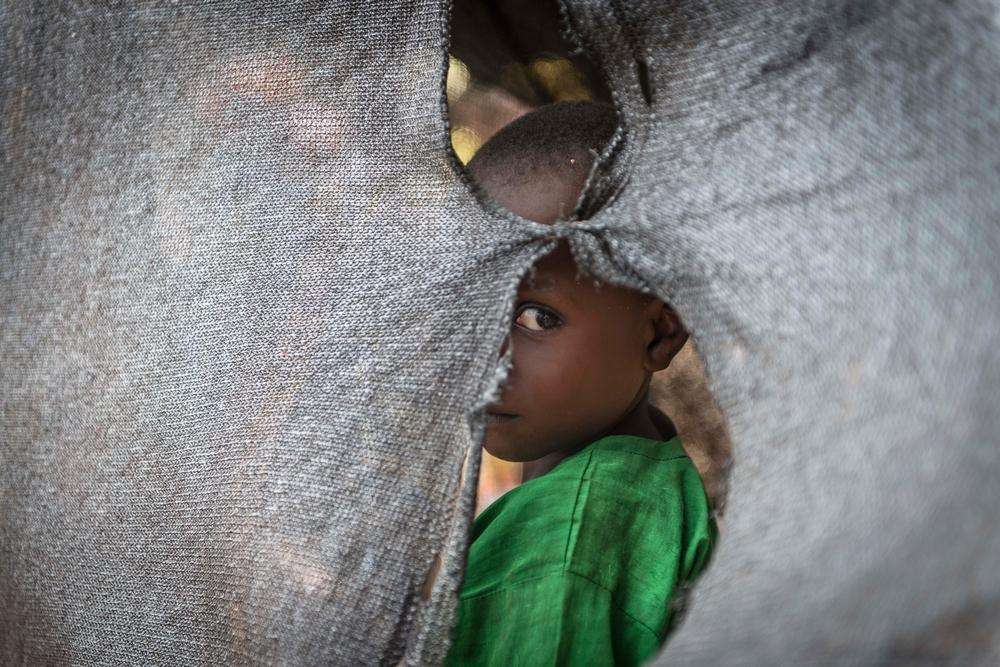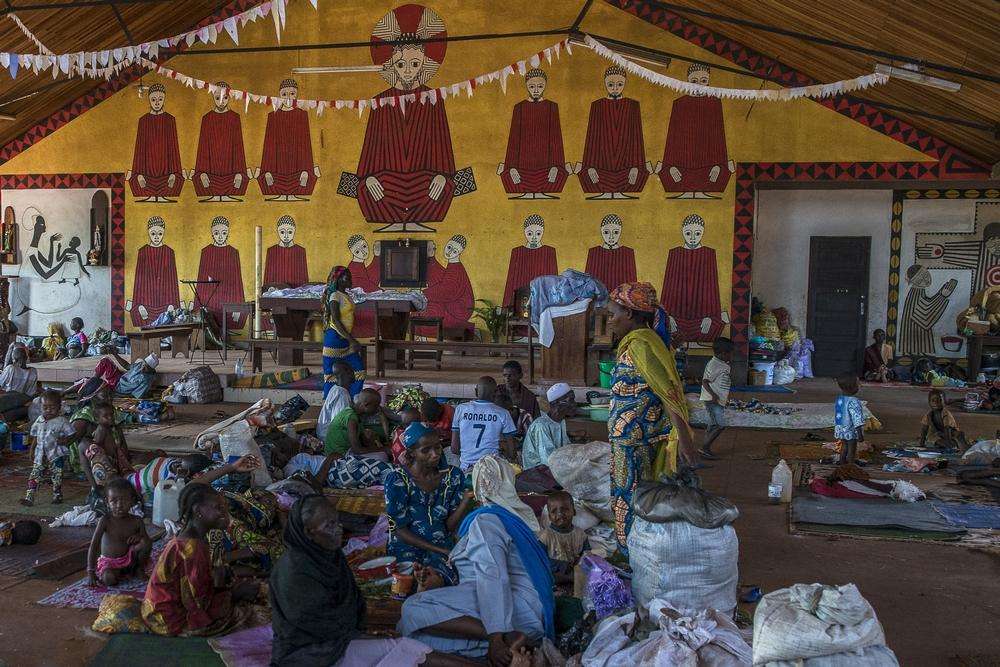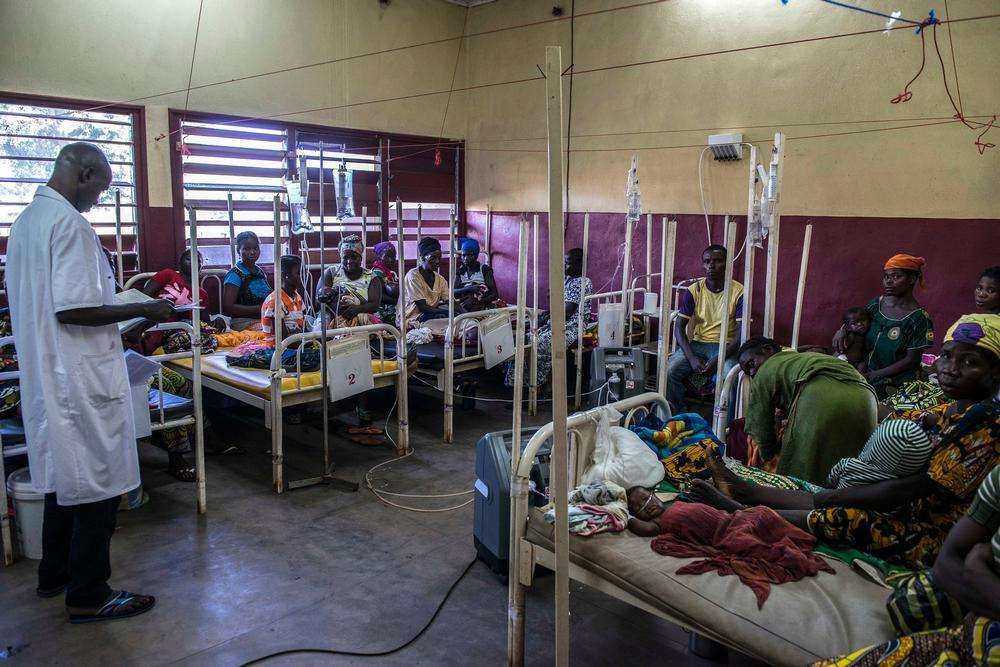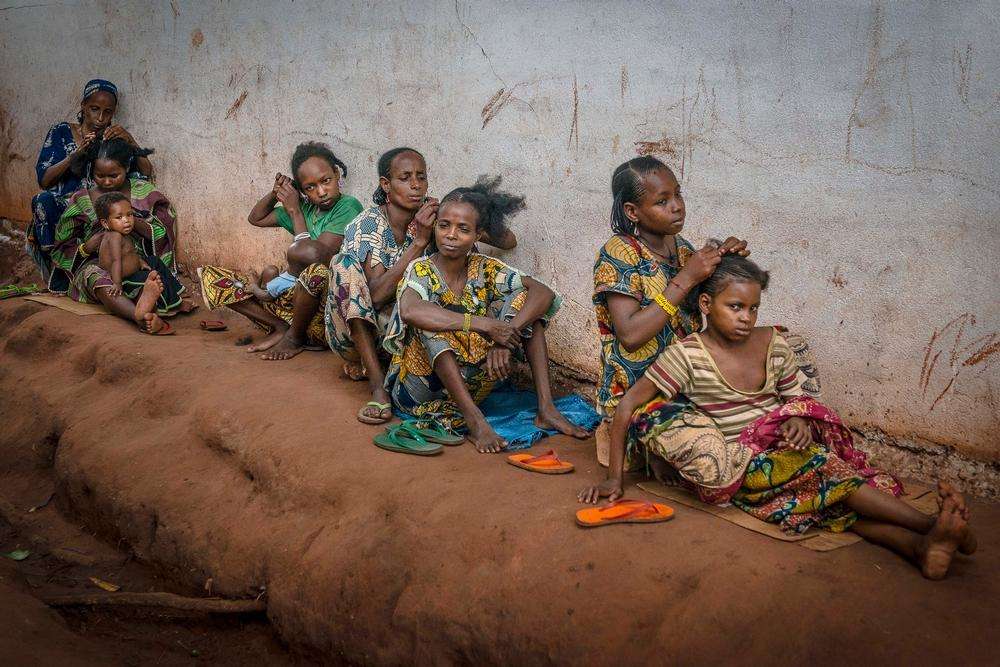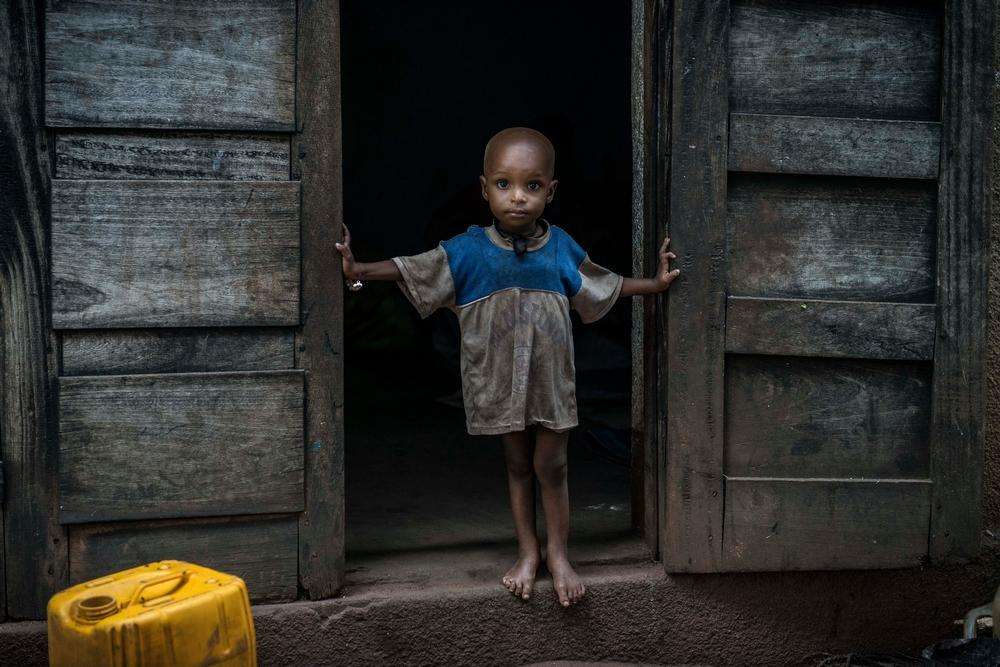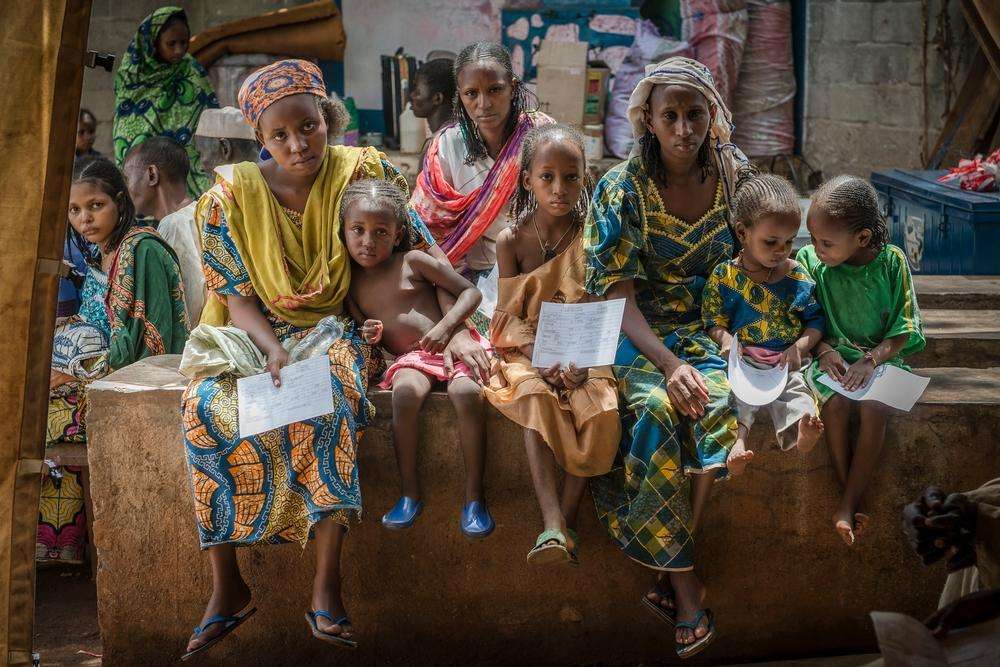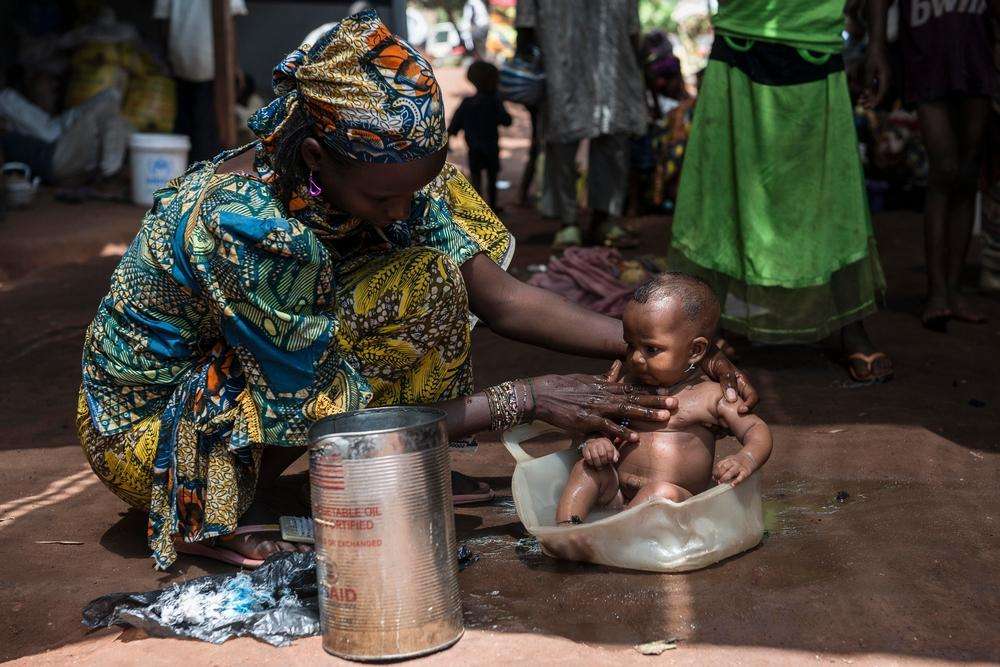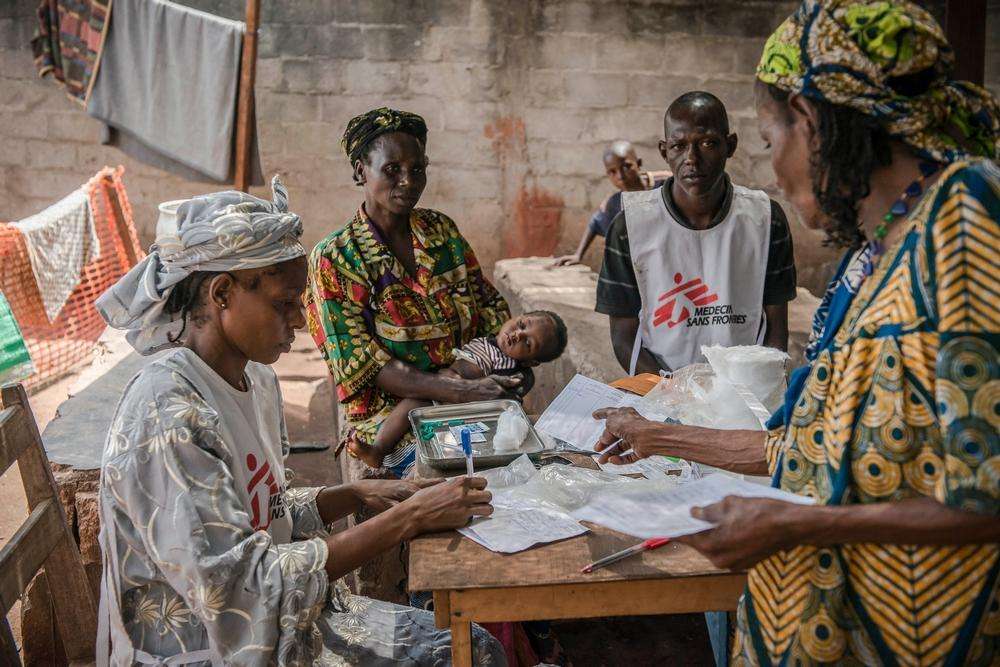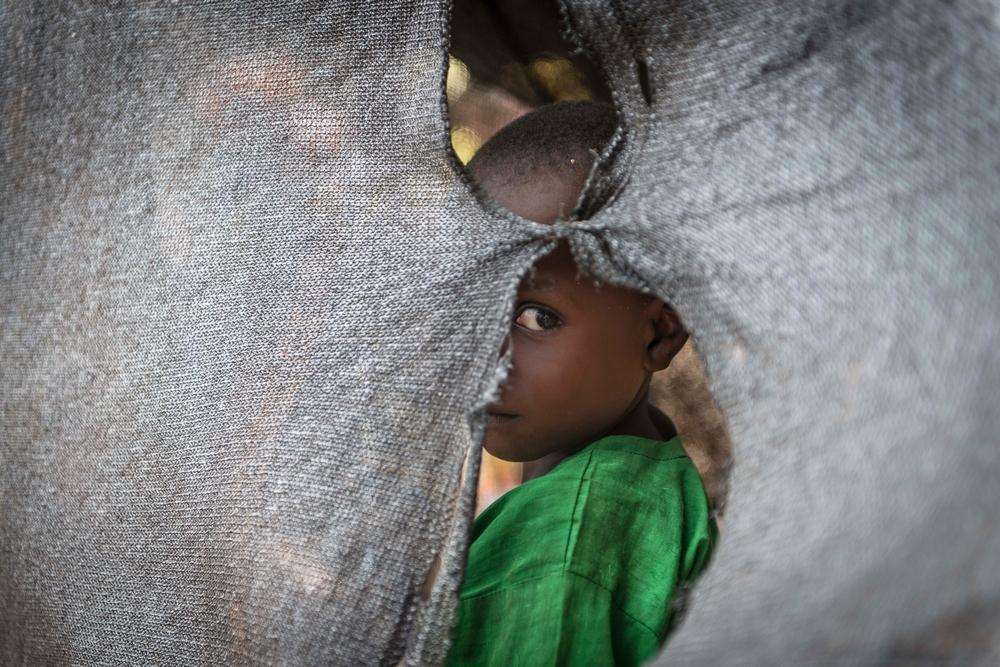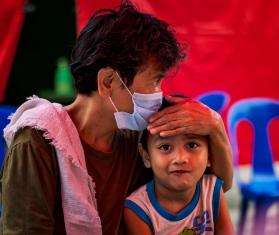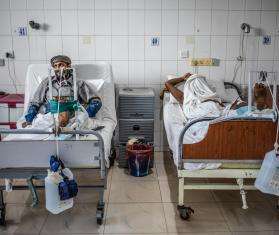Extreme violence in Central African Republic (CAR) continues and front lines shift while anti-Balaka militias and ex-Séléka rebel groups battle for control and other criminal elements act with impunity. Although international forces on the ground are growing in number, they are still unable to secure the protection of the civilian population, in particular the Muslim communities that have either fled or live in a few enclaves under international armed protection. In Carnot, around 900 displaced Muslim people are staying at a Catholic Church in crowded and unsanitary conditions, under guard by African Union soldiers from Cameroon. Doctors Without Borders/Médecins Sans Frontières (MSF) is in Carnot, providing medical care, water, food and sanitation.
